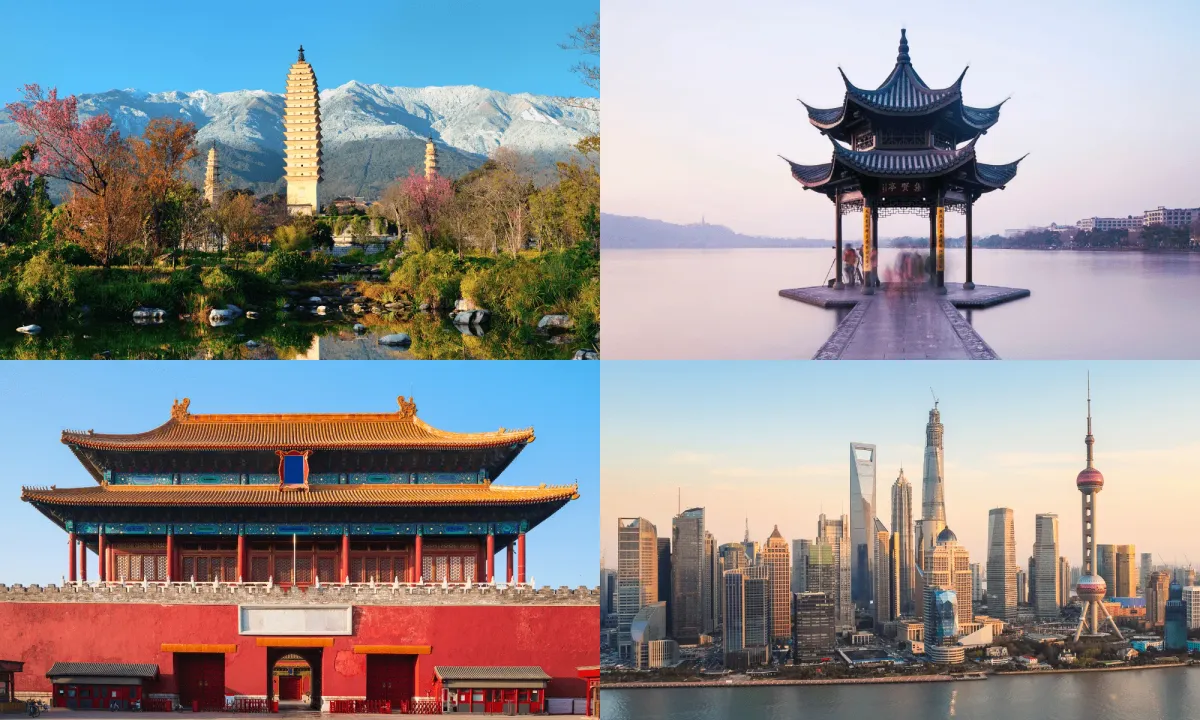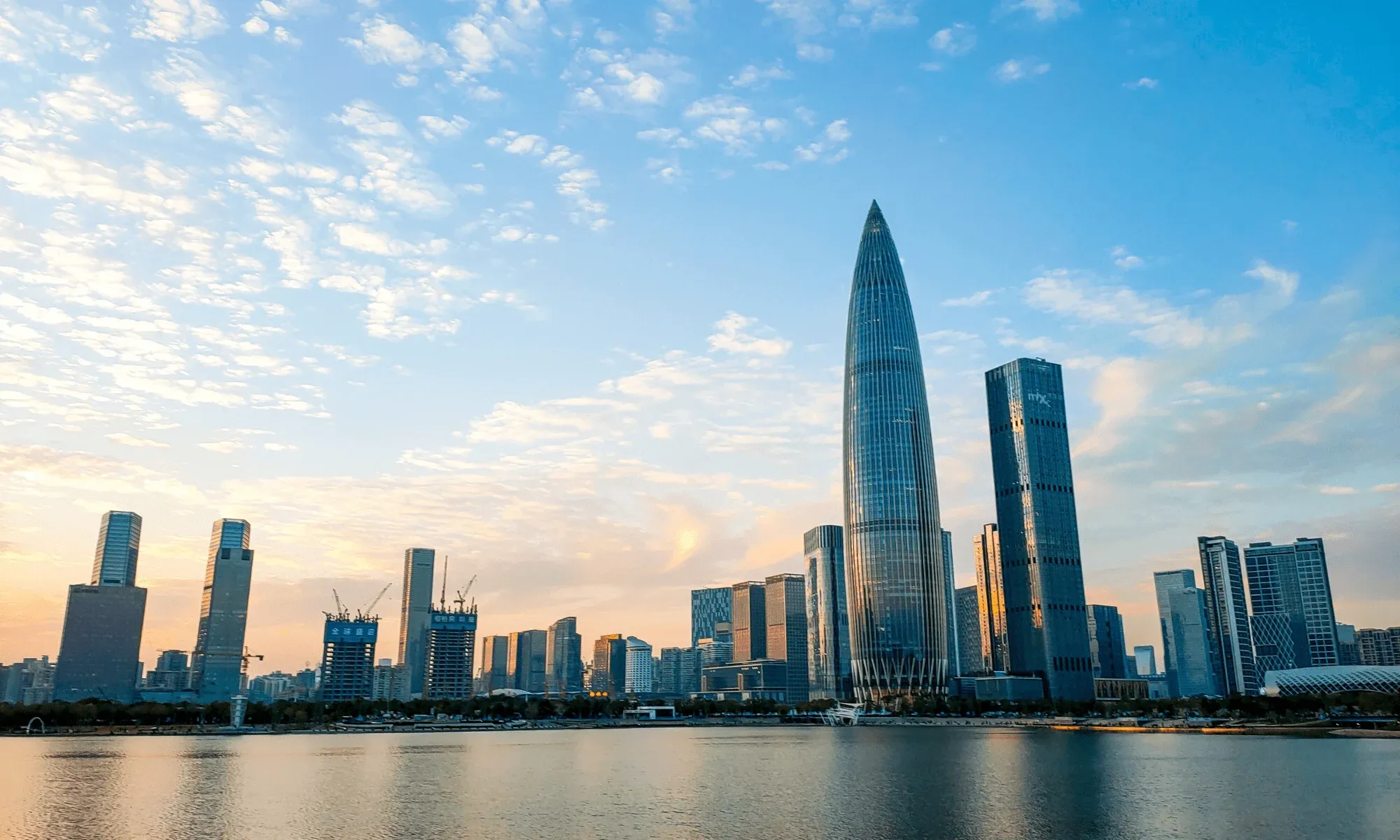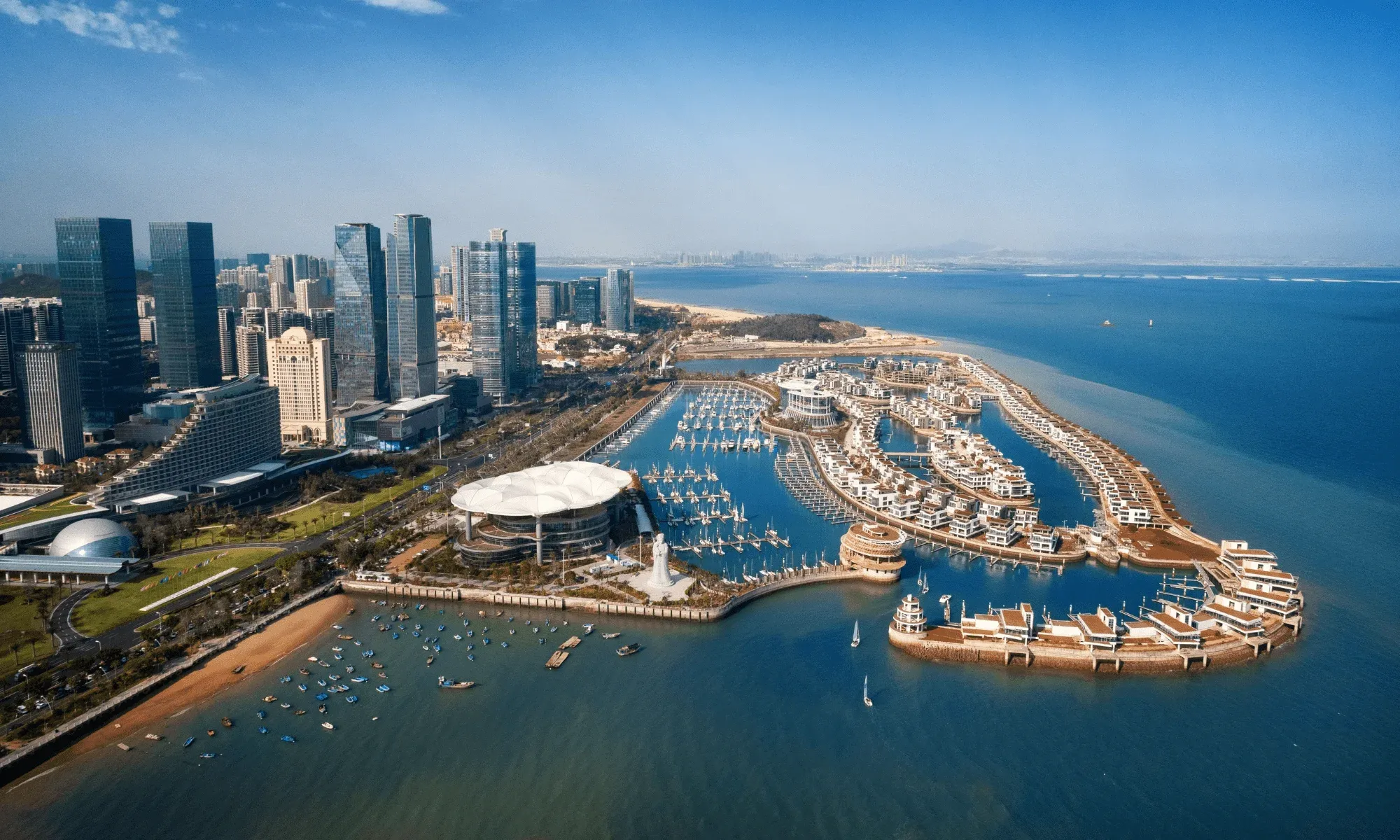China for Digital Nomads: Best Places to Work Remotely in China

While a global powerhouse for years now, China has only recently started catching the attention of digital nomads. With its booming digital economy, lightning-fast internet, and growing coworking scene, the country is now emerging as one of the most exciting and underrated places for remote work.
While it can be visited year-round, the best time to visit China as a digital nomad is in spring (between April - May), and fall (between September - November) when the temperatures are mild and it's not too hot or too cold.
Of course, working in China does come with a few quirks. A reliable VPN is essential to access many websites. But once you’re set up, you’ll find a country full of beauty, history, diversity, and tons of things to see. So, let’s explore the best places to work remotely in this fascinating country.
1. Shanghai

China's largest city and most important economic and trade hub, Shanghai is often called the "New York of Asia" for its futuristic skyline at the Bund, tree-lined streets of the French Concession, and world-class museums. The city is packed with places to set up your laptop: you can work from the many Starbucks in the city or at the renowned MOKA Cafe (not suitable for calls due to the slightly loud music thought!) or you can instead choose from the numerous WeWork locations for deeper remote work sessions. The city has impressive internet speeds, and once you have the right VPN setup, you can count on download speeds averaging around 255 Mbps.
The expat community in Shanghai is arguably the biggest in the country, yet the city’s rich cultural heritage offers plenty of ways to dive into authentic Chinese culture. It’s not the cheapest place to live in China—monthly costs typically range from $1,500 to $2,000 but trust me, it's worth every yuan. its efficient subway system and low-far car-hailing services like Didi make it easy to navigate such a massive city at an affordable price.
2. Dali

If you'd rather experience China's countryside than its megacities (without sacrificing comfort), Dali in Yunnan Province should be at the top of your list. This town well-known for its edgy and freer way of life among the Chinese youth, has also recently made the news as one of China's rising digital nomad hubs.
And the Old Town, with its cozy streets, traditional Bai architecture, and artsy vibe, is where it’s all happening. Here, you'll find coworking spaces like WAMO LAB that offer super-fast internet speeds (around 200 Mbps) and a very knit community of local and foreign digital nomads working together in a peaceful setting. The coworking is located in the Suofang Zhou Future Space (素方舟未来空间), a comprehensive community focused on natural and healthy lifestyle practices, so if you are vegan or vegetarian you will love this place so much!
Living costs in Dali are at a fraction of what you'd pay in bigger Chinese cities, with average monthly expenses of around $1,000. Plus, you're sandwiched between the Cangshan Mountains and Erhai Lake, so weekend getaways practically plan themselves, especially if you can rent a scooter. You're also just a stone’s throw away from the UNESCO-listed Lijiang Old Town, Shangri-La, as well as Yunnan's capital, Kunming, and its international airport.
3. Hangzhou

In Hangzhou, one of China's first Tier 1 cities, tech giants like Alibaba rub shoulders with thousand-year-old temples, all set against the backdrop of the stunning West Lake and terraced tea plantations. The city's tech scene is truly thriving, with numerous coworking spaces like WeWork well equipped with super-fast internet speeds of around 200 Mbps.
Despite its status as a vibrant tech hub and one of Venetian explorer Marco Polo's favorite cities, the cost of living in Hangzhou is a steal compared to Shanghai or Beijing, with a single person's estimated monthly expenses amounting to around $1,300-$1,700. For the best digital nomad experience, check out the Xihu District, easily reachable via subway from any part of the city or the area around Qinghefang Ancient Street, where you will find plenty of cute cafés to work from or shops and interesting corners to wander around (you will love it).
If you are seeking that perfect mix of old-school Chinese vibes and modern conveniences, Hangzhou is your place.
4. Beijing

Beijing needs no introduction. As one of the world’s oldest cities, with over 3,000 years of history, it has served as China’s political and cultural heart for more than 700 years. Iconic landmarks like the Forbidden City, the Temple of Heaven, and the Great Wall are living testaments to its prestigious history.
Today, Beijing is also home to some of the country’s best cafés and coworking spaces including big chains like WeWork and Regus or China-based coworking spaces like MydreamPlus and Distrii Technology Development, all offering reliable internet averaging around 250 Mbps.
While living here isn’t the cheapest by Chinese standards, with monthly costs ranging from $1,500 to $1,800, the networking opportunities more than make up for it. Oh, and don’t leave without trying the legendary Peking duck, it’s an experience in itself!
5. Shenzhen

Once a sleepy fishing village in South China, Shenzhen is now a skyscraper-filled metropolis often compared to Silicon Valley for its many tech manufacturers and software companies like Huawei. With coworking spaces like OpenMind offering lightning-fast internet speeds of up to 300 Mbps, Shenzhen is also one of China's youngest cities where English is widely spoken.
Despite being ranked the world's 27th wealthiest city (set to break into the top 10 by 2024), living comfortably here costs just $1,200 to $2,000 a month. In your free time, explore Huaqiangbei, the world's largest electronics market, relax at Lianhuashan Park, or take a short trip to much pricier Hong Kong.
6. Chengdu

Some people may know Chengdu as the capital of Sichuan, a province famous for its tongue-numbing cuisine and Chinese opera. Others may know it as the home of the world-renowned Giant Panda Research Base, the biggest research facility dedicated to the study and conversation of pandas.
But Chengdu is also a great digital nomad destination. As the only Tier 1 megacity consistently voted China's happiest city, it offers a surprisingly relaxed pace of life for better work-life balance. Here, you'll find plenty of cozy cafés offering reliable Wi-Fi, including many Starbucks. Living here is surprisingly affordable compared to cities like Shanghai or Beijing, with monthly expenses for a single person ranging from $1,500 to $1,800.
7. Xiamen

An island city facing Taiwan, Xiamen was one of China's first ports open to the world and is undoubtedly the hidden gem of this list. Often seen as a retirement paradise for the wealthy, it’s known for its clean air, spotless streets, and status as a special economic zone. The city’s wealth has helped make it one of the prettiest in the country, and its subtropical climate with mild temperatures year-round only adds to its beauty.
Xiamen has a few coworking spaces, including Regus but plenty of cafés with fast internet (~150 Mbps). Living here is relatively affordable, with monthly expenses for a single person averaging around $1,500. When you’re off the clock, explore Gulangyu Island, a UNESCO World Heritage site known for its colonial architecture, or take a relaxing stroll along Xiamen’s beaches. Fujian's seafood specialties and some of China's finest tea round out the experience!
Ready to Work From China as a Digital Nomad?

Join our global
digital nomad community
Join us for free
Freaking Nomads is supported by you. Clicking through our links may earn us a small affiliate commission, and that's what allows us to keep producing free, helpful content. Learn more





 Travel tips, hacks, and news
Travel tips, hacks, and news Exclusive travel discounts
Exclusive travel discounts Offers and promotions
Offers and promotions Digital nomad inspiration
Digital nomad inspiration Latest articles form our blog
Latest articles form our blog